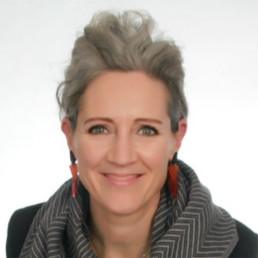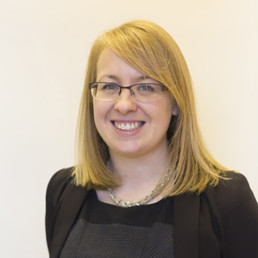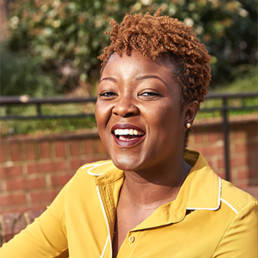Switching on the local talent resource in international schools.

Written by Laura Mitchelson
Laura is a freelancer helping schools in Retention and Engagement. Previous roles include Director of Enrollment and Communications at Dwight School Hanoi, Impact and Innovation Unit Advisor at Qibao Dwight High School, Secondary Language Teacher at Millfield School.
According to the OECD’s Teaching and Learning International Survey (TALIS) 2018, the average annual professional development hours for teachers internationally is around 62 hours per year. Some would argue it should be more, some might debate the value of some of that PD but it’s there.
In other industries like healthcare, retail, finance, banking, IT and telecoms, the average number of hours of professional development received each year is also about 60 hours but there is one difference – in those industries, it doesn’t matter which part of the organisation you are from, you have access to the same amount of professional development – it might depend on how long you have been with the business or what level you are at, whereas in the international school sector, teachers almost always have access to many more hours of PD than their colleagues in the business management side of the school do.
When will Finance, IT, HR and Operations teams be given the same access to professional development and learning support as their teacher peers?
There is a lot to consider here – it is the road less travelled, so proceeding with caution makes sense. To start requires us looking at THREE things:
- What are the existing professional qualifications that school management team staff have? Are Finance Directors ACCA certified? Does the HR Manager have an SHRM certification? Does the IT Director have the CITM? Do school leaders and governors know these accreditations and their issuing bodies well enough to assess candidates at interview stage in these professions and does the school look for these at the recruitment stage?
- When, how and what should make up the professional development that these management team staff receive once they are at a school? Is there a career growth pathway, planned support for professional growth, where does the budget come from?
- Where can teaching and non-teaching staff come together in professional development? Soft skills development with a focus on areas like team leadership, project management, budgeting, running effective meetings, and reporting are all areas of growth that are common to educators and business managers.
By developing ALL staff, schools respect both the notion of professional growth in general, and allow these school management professionals to be seen on a level with the wonderfully qualified and heavily professionally developed teaching staff. It is appropriate and right that we shine a spotlight here.
Schools have a wide variety of options available to them when they embark on the professional development of their school business management teams. Here are some approaches that can be considered depending on the stage and needs of the individuals and teams in place:
- Internal or External Mentoring
- Coaching
- Shadow Days
- Language Lessons
- Observations
- Internal/External Training
- Online study
- Master’s Degree support
- On-the-job training
- Industry body membership
- Conference attendance
- Career Mapping
- High quality appraisals
- 360 appraisals
- Job rotation
- Internship programs
- Group coaching
- E-learning
- In-house workshops
- Day release to further education
- Supported Local/virtual networking
- Employee wellness programs
With a pay disparity between international teachers and those, often local staff, who work in ‘support’ roles like IT, Admin, HR, Finance and Operations, divisions and rifts can form, and by actively supporting the professional growth of those who work in these functions, schools can reap significant benefits in the areas of school reputation, retention, cross-departmental collaboration, and organisational resilience.
There is room for much more discussion of this topic in the coming years.
At The Reverse Mentoring Practice, we want to have BIG, game-changing conversations

Written by Stacy Johnson MBE
Chief Scientific Officer and Founder of The Reverse Mentoring Practice. Stacy is a leading voice on the frontier of justice, inclusion and belonging work. She helps organisations to re-imagine, re-engineer and reset their culture. Her groundbreaking work on reverse mentoring and practice supervision is making waves. Stacy is #TriniToDeBone
We want to talk about reverse mentoring in situations where you’re trying to improve inclusion, as an approach to retaining staff, and who may also be dealing with barriers to inclusion, who may find themselves in tricky situations and circumstances related to their protected characteristic. We do not want to have superficial conversations.
We want to celebrate the lived experiences of people through the magic of reverse mentoring, whether it is informal or formal, whether it’s programmatic in your organisation, or ad hoc.
We want to help you listen differently, to spark change in your organisations by empowering you and your senior leaders to move forward with cultural humility to ignite equitable action.
We sat down with Stacy Johnson MBE, our Chief Scientific Officer & Founder at Reverse Mentoring Practice who shared her insight and research on reverse mentoring. In the online seminar Stacy also held a question-and-answer session where one member asked:
Q: How can we get the people that would benefit from a mentoring relationship interested?
Stacy: Whether you are a very senior person or a junior person, you should periodically pause and assess.
Ask yourself: Am I being mentored? Am I mentoring anybody else? And if one of those things is not true, you need to make that right. You should always, at any point whether it’s formally or informally, be mentoring or being mentored.
It’s about reminding people on both sides of the equation that there is benefit from being a mentor and being mentored.
As far as those who are already converted, we should be more open about what mentoring is.
For example, the way I got a reverse mentor was because an amazing young man said to me, “will you mentor me?” And I actually felt a bit of horror. In fact, I remember saying to him, “I’m a terrible mentor! Let’s just meet and have some coffees!”
And then eventually, after several of those meetings, I said, “actually, will you reverse mentor me?”
I guess that’s because I had never been formally trained as a mentor. Some people have the impression that you have to be really knowledgeable, and you have to have all the answers. The idea of being formally asked to be a mentor is probably quite intimidating to even the most amazing leaders.
For me, I just want to have interesting conversations with this amazing young man and share ideas about things that had worked for me, things that I’d seen had worked for other people who were similar to him, or different to him. As soon as he labelled that mentoring, I panicked. So, it might be the same the other way around.
Maybe for the people who are not yet converted, it’s about offering it up as an informal relationship and connecting with somebody who is more junior to you, or more senior to you. Maybe that pulls them in, they begin to see the benefits and then they can happily then label it mentoring. They will be extolling the virtues of mentoring, and you won’t have to convince them.
If you want to know more, join us at the Diverse Educators webinar where we will explore how we unlock the potential of reverse mentoring and cultural humility in driving personal growth and organisational success. The recording will also be available to playback afterwards.
Peanut Brittle or Marshmallow? (Growing into Flexible Working)

Written by Erin Skelton
Erin is first and foremost an educator and her extensive experience includes a diverse range of roles, encompassing both pastoral and academic leadership positions, across both independent and state education settings. Prior to joining Bright Field, Erin’s most recent role was as Assistant Head and Head of Sixth Form in a top independent girls' school. In this role, she nurtured her students, instilled a sense of purpose and provided invaluable mentoring to prepare them for life as a woman in the 21st century and beyond.
It’s 8:39 on a Monday morning as I sit and type this. I’ve already had breakfast, fed the dog, emptied the dishwasher, folded and put away the laundry, and undertaken the mammoth task of ensuring that my son was prepared for the day and is sitting on the school bus. My first meeting isn’t until 10:00… Normally, with military precision I would be up, packed and gone by 7am on the dot to get myself to school for 7:45. Logged on, armed with the first of many caffeinated drinks, I would already have sent multiple emails and dealt with numerous issues before anyone else arrived; after all, I had spent the last seven years as Assistant Head in charge of a large Sixth Form in a top independent school.
And yet, here I am, on a Monday morning, sitting in my home office. I am one of many senior leaders in education who have opted out of senior leadership. If you’re reading this, then I’m sure that you have read the constant stream of headlines and statistics about teachers at all levels wanting to redefine what their working lives look like. Well, I am one of those people.
Full disclosure, the decision to step out of a SLT position has been a challenging one. As an Assistant Head, on a good day, I felt like I was making a significant difference to the school and students; I felt a real sense of purpose, like I was an empathetic superhero. That is a feeling I still love and it’s one of my core values. But realistically, I knew that to achieve that I was working sixteen-hour days, I was at every school event, answering emails at 11:00pm before I closed my eyes, and the first thing I would do in the morning was to check my email with dread to see what had come into my inbox whilst I was sleeping. I was sacrificing my time, my family and ultimately my wellbeing, and I was measuring my sense of worth solely by my job. But what about the holidays, I hear you say. Most Heads of Sixth Form work most of school holidays; we field university and UCAS application issues, worries about mock and real examinations, we prepare for and support Y11 students around GCSEs and entry to our Sixth Forms and we work tirelessly around A level results, university admissions and UCAS clearing. Almost every issue that lands with us is a matter that could change the course of a young person’s life. It is not a job for the faint of heart.
I spent so much of my time giving inspirational assemblies and talks about knowing your worth, being brave and following your dreams, that I had ultimately known for several years, that I needed to do that for myself, even if I knew that I would probably have to unravel many of my own self-beliefs to get there. I loved my role and I love my school. I was also fully aware that I could have tried to find a better balance, that I could have had healthier boundaries around my job, but the nature of my role meant that if I did that, it would be the students who lost out, because my role wasn’t about ticking boxes, it was about people and what made me a great Head of Sixth Form was that I was invested in ensuring every student was happy and as successful as possible.
Cue discussion about being authentic and following my dreams… The reality was that I felt trapped; I had been a teacher for eighteen years, all of which had been in some type of leadership position. I had no idea what it was to not have leadership responsibilities and like so many of my colleagues, I thought the only thing that I could do was “teach”; we forget the vast skill sets that teachers have. I made lists, I sounded people out, I listened to podcasts, and I read. I tried to remember what my dreams actually were.
Eight months ago, armed with my thinking, I walked into my Head’s office after psyching myself up for three months to speak to her. That initial conversation with my Head set things in motion, and I returned to my school in September as a part-time main-scale teacher for the first time in eighteen years. Here’s what I’ve learned so far…
We are educationalists not simply teachers. We have a vast skill set and are not defined by the parameters of a job description. Teaching seeps out of our pores and when you work outside of one singular educational setting you get a real sense of how this is a superpower that can be applied in so many areas of life and work.
I didn’t step down, but I did step out. I think it’s important to think about the language that we use when we talk about changes in the ways people work. I have had such mixed responses to my decision. When a person wishes to work more flexibly, particularly when the decision has nothing to do with childcare needs or health, that decision is often questioned on the grounds of their ability to “cope”. We shouldn’t have to cope; there are no awards for giving so much of yourself into any role that you have nothing left. I am a highly successful, highly competent leader in education; I didn’t fail because I wanted to step out of the parameters that were defined for me, I wanted to draw my own.
Flexible working doesn’t come without its challenges. I work full-time across two roles: one teaching and one largely within educational settings both in the UK and globally, plus some additional passion projects. Balancing the demands of both roles requires a lot of organisation and commitment to both institutions equally. I would add that as teachers, we are very institutionalised; our days run to a formulaic schedule, and we become adept at putting ourselves last during the course of the school day. This is a real issue for everyone I have met who has moved to part-time teaching or moved out of the classroom altogether. Suddenly there isn’t a bell telling us when we can go to the toilet, a timetable dictating how we spend our days, or a salary that we receive irrespective of the additional hours we put in. Suddenly we have to navigate part-time working conditions, changes to the complexity of how our tax, pension and benefits are calculated and sometimes a lack of understanding from the full-time staff managing our HR and payroll.
Stepping out of a leadership role and remaining in my school has also personally been a real challenge for me. I now know that I could have undertaken my SLT role part-time as well as taking on my new role with relative ease. I am also slowly settling into being a classroom teacher where there are no expectations for me outside of that role. It is hard to have to say ‘no’ when students approach me for support, or you can see colleagues struggling with the burden of their workload or a problem they would have previously approached me to solve, particularly given the nature and size of my previous role. At present, there is still a lot that I am doing behind the scenes to support which I am not paid to do, but I do so because I care, and my decision has had a significant impact on the school.
If you can make peace with the frustrations, flexible working can give you space, time, and a balance to your perspective and the way you live your life. It’s very early days for me, but already I am excited about utilising my skills in new ways, taking the time to meet new people, read inspiring books and work more creatively on projects that have a wider impact. I am noticing little things, taking reflection time, being out of doors, being more present with my family, resuming old hobbies and taking up new ones.
I find myself growing to fill an expansive space and I welcome it.
Opportunities

Written by Lindsay Patience
Lindsay Patience is the co-founder of Flexible Teacher Talent. She is a Teach First Ambassador, a School Leader and a mother.
Opportunities are usually so exciting and positive, but they can also be a cause of frustration and worry.
Sometimes when an opportunity comes along we ask ourselves: Can I do this? Should I do this? Is this the right thing for me at this time? Are the risks too great? Is this what I want?
I’m usually very much of the mindset that opportunities should be grasped with both hands, we should be 10% braver as #WomenEd say. I think it’s important to take opportunities when they arise to develop myself, to show others it can be done, to make progress, to drive change. Sometimes I feel privileged to have access to opportunities and sometimes I feel I’ve worked really hard to get to them, sometimes I have both of these feelings concurrently. I feel a certain sense of duty to embrace opportunities for myself, for others women, for my children. To show that I can do it, they can do it, we can do it.
I’ve recently been faced with a situation where I have a huge professional opportunity, it is everything I could have hoped for, almost unbelievably so. But it has come at a really bad time for me. I’ve just had my third child, a much hoped for and loved rainbow baby after a sad loss the year before. How I work in the next year or two may need to be substantially different and I’m just not sure I have the capacity to take on the new opportunity that I’ve worked hard to secure. What a waste! What frustrating timing! If it was all just six months or a year later! But it isn’t – it’s now.
So I’ve come to the conclusion that saying no to opportunities can be brave too. It can show others healthy boundary setting and set a good example as a role model. I’m prioritising different things at the moment. It wasn’t the right time but I can make an impact in other ways, there are other paths that I can take later on when I’m ready, when the timing is better. It feels hard to make that decision, it seems both selfish and self destructive in a very confusing way.
I think we often say no to opportunities because of imposter syndrome or to comply with gender norms or because the system prevents us from making genuine choices. Because of this there is a guilt and a fear of saying no to opportunities. We must push ourselves, feel grateful for the opportunity, be a role model and a trail blazer. But sometimes the best thing for you, your personal choice in your unique set of circumstances is to say no to the opportunity. Not to grasp it but to let it pass, maybe delay it, maybe give it up forever. Sometimes that is the best thing to do and the right thing to do. But this can feel wasteful, ungrateful, shrouded in guilt and potential regret. It can lead to resentment and anger where the decision is forced by circumstances. There’s also an undercurrent here of unfairness – I’m in this position because I’m a mother, are fathers facing these same missed opportunities? That pressure and guilt I feel about the opportunity, is that largely because of my position as a woman and a mother? As with so many things, when intersectionality is considered there is likely even more pressure to “be what you can’t see”, to take the opportunities because they may not come again, to want to get the rewards you’ve worked so hard for.
Sometimes it’s ok to let an opportunity pass. They say when one door closes, another one opens – even if you are the one to close the door yourself this is still the case. I will have to be brave enough to trust that there will be other opportunities at the right time for me.
But what do we need to change so that people can truly make choices about opportunities that present themselves? Greater flexibility in how we work? Greater flexibility on timing for starting jobs/projects? Better childcare options? Changes to societal norms and pressure? More opportunities for those with protected characteristics? If we want the best people for the job then we need to think differently about the opportunities people have and how to support them in taking them.
Darkness, Light and Legacy

Written by Serdar Ferit
Filmmaker, digital experience designer, and teacher who has won numerous awards and worked in over 20 countries on film, new media and education projects. Co-CEO of Lyfta.
Legacy
I founded Lyfta with my amazing wife, Paulina, 7 years ago, and since then we have built the most phenomenal team. Our journey started in 2004, with a story that inspired us, and over the years it has developed into our life’s work. Like many of the people we work with in education, we want our legacy to be one of big, positive and lasting change.
For those who don’t know, Lyfta is a learning space for children where they can access powerful, real-life stories through short documentary films and explorable immersive environments. We learn through stories and Lyfta is designed to teach children about the incredible and varied web of people and communities across the globe.
Legacy is something I have been thinking about a lot lately. Just as I thought Lyfta was finally finding its feet, with a complete team and a sense of a gear change on the horizon – a less intense one for me, I hoped! – I found out that I have colorectal cancer. This was in early October. The doctors initially said it was at an early stage and a slow grower, but after a couple of biopsies and numerous scans, in mid November, I found out that it has spread to my liver; stage 4. A bit of a curveball at 42.
The most difficult thing I have done in my life is telling our 8 year old son that I have cancer. Not being able to reassure him, with authenticity, that everything will be OK, triggered a cocktail of emotions I’ve not experienced before, and wouldn’t wish on anyone.
I’m not telling you this so you can feel sorry for me. I’m determined to beat this thing. I know that the key to this will be my frame of mind. I am a relentlessly positive person, but the last few months have been challenging in that regard.
Darkness and Light
I know I’m not the only one who has had a difficult period. Most of us have had a very challenging last few years. As a leader, part of my duty is to see the light, and to guide my team towards it. Over the last couple of years, light has not always been in abundance. At times, for many of us, things have been rather gloomy. But I think we all know that there is always light, no matter how dark it seems. This is something I’ve had to remind myself recently. And look for.
I am constantly nourished through the meetings I have with other people and the authentic human stories that we have curated and collected on Lyfta over the years. Stories move me. They have been invaluable in giving me different perspectives, in helping me see outside of my own world. Hearing about other people – what they achieve, who they love, the hardships they face and overcome – these stories sustain and change us.
Grown ups need stories too: a series of events to spread hope and inspiration. The amazing poet and storyteller Ben Okri said, ‘Stories can conquer fear and make the heart bigger.’ I think we need this at the moment – I certainly do. In an effort to inject some light and positivity into my life, and the lives of others, over the next year, I will be hosting a series of short online events where I will share short and powerful documentary stories that personify hope and resilience.
These online sessions will be for anyone who needs a lift or a bit of inspiration. A space where you will be able to put your worries to one side and be taken on a short journey. We will immerse ourselves into real human stories of resilience and hope, followed by a reflection exercise which will give you a space to express your thoughts if you wish to.
The Format
The sessions will be an hour long and there will be six over the coming year. We will explore two very different stories in each session, followed by a short reflection exercise, and, over the series, we will travel to at least 10 different countries. The stories are incredible and I am honoured and excited to share them with a wider audience.
There will be an opportunity to donate too, which will go towards subsidising Lyfta for all schools and provide a bursary fund for schools in financial difficulty, or with pupils in need or crisis.
Lighting the Way: Please Join Me
If you are interested in joining me for this journey, for one, some or all of the sessions, please register on the Eventbrite link. You could also get tickets for loved ones, colleagues, or even a whole team! The strength of the sessions will be the stories that we see and hear on screen, but it will be your stories too, and how we find and weave meaning in our lives – it will be that which will make these gatherings so powerful.
I look forward to meeting you around the virtual fireside, and finding the light to inspire us through 2023. I hope you can join me.
Why I pretended my dyslexia wasn’t a big deal - my experiences as a dyslexic teacher.

Written by Catrina Lowri
Catrina Lowri is the founder of Neuroteachers and a neurodivergent teacher, trainer, and coach. As well as having 22 years’ experience of working in education, she also speaks as a dyslexic and bipolar woman, who had her own unique journey through the education system.
When I had already been teaching for about 10 years, I met a pair of grandparents at a friend’s barbecue. They had just received some devastating news; their 9-year-old grandson had been diagnosed with dyslexia.
They told me this in hushed voices, as if they were ashamed.
Although, their reaction was not unusual (97% of respondents in one survey viewed dyslexia negatively *), I was taken aback. Did this mean I should be ashamed or devastated about my own neurodivergence?
I did my best to reassure the couple that their grandson would be fine. I told them lots of successful people, like Richard Branson and Tom Cruise are dyslexic. Although he might need extra support, their grandson could get GCSEs and A levels if he wanted. They seemed reassured. Then I told them I was a dyslexic teacher.
Their reaction astounded me even more than the shamed hush had done previously. They were over the moon at my success! The grandfather toasted my talents, and the grandmother gave me a hug. They both treated me like I had just climbed Mount Everest. I couldn’t fathom why.
Until that point, I had never considered my achievements anything special. Yes, I’m a dyslexic teacher who went on to gain a master’s degree but was that out of the ordinary? I knew no other dyslexic teachers, but they must exist. I’ve always disliked it when people say I’ve ‘overcome’ my dyslexia. I haven’t. I’m still as dyslexic as I was the day I was born ( it’s genetic). I’ve just found ways around it. Most of which involve the use of technology.
I used to downplay my attainment in a matter-of-fact fashion. I disliked people who made ‘ a big deal’ of their dyslexia. My dyslexic friend, and I used to joke that we would write a book called ‘So you’re dyslexic? Just live with it!” As if all you had to do was keep calm and carry on.
I have talked before about my experiences at teacher training, where another student commented that he believed dyslexia was a middle class camouflage of a lack of intelligence. That must have stuck because, up until my chance meeting with these grandparents, I had just shrugged off my neurodiversity (ND) and downplayed my success.
After meeting my fellow barbeque guests, however, I changed my attitude. No, it hasn’t been easy to forge my career, firstly as a schoolteacher and now as a private specialist teacher and trainer. Yes, I do find several aspects of the job harder because of my ND. And yes, I am proud of my achievements.
I’m now 23rd years into my career, I’ve met hundreds of colleagues, yet I know very few ND teachers and even fewer dyslexic ones. My next step is to try and find us all support and recognition so that we can be good role models to ND children. And perhaps inspire the next generation of ND educators.
Reference Dr Kate Griggs ‘ The Creative Brilliance of Dyslexia’ https://www.ted.com/talks/kate_griggs_the_creative_brilliance_of_dyslexia
The Journey To Overcoming Timidity

Written by Ayo Awotona
Ayo Awotona specializes in confidence building for girls in education. She does this through programs, workshops, and keynote speeches.
“For the timid, change is frightening; for the comfortable, change is threatening; but for the confident, change is opportunity.” – Nido Qubein
Being human, we tend to adopt certain qualities that do more harm than good. One of those qualities is timidity. So, let’s take a look at how we can overcome being timid as a leader in education a.k.a servant leader.
What is timidity?
It is defined as showing a lack of courage or confidence. To clarify, there is nothing wrong with having moments of not feeling confident or courageous but it becomes a hindrance when we take on a persona of a timid person, especially as servant leaders.
What can cause timidity?
There are many causes of timidity; for example, an unhealthy relationship between the SLT, constraints around teams (thoughts, behaviours, and styles), process (reporting, hierarchy, and steps), and technology (tools, applications, and systems), fear of transparency or a combination of these things.
Ultimately, a helpful way to overcome timidity is first learning what the root cause is. Sometimes we get caught up with the symptoms instead of dealing with the underlying issue. Just like when we are ill, rather than focusing solely on the symptoms, we try and find the cause of the illness and treat it.
Introspection is really beneficial to not only pinpoint the symptoms but also discover what causes our own timidity. From there, we can decide what the next step is to effectively deal with it.
The consequences of timidity
A major reason why we need to tackle timidity is that it can cripple us from being the best servant leaders we can be.
Below is a list of examples of how timidity can negatively affect us:
- Second-guessing oneself
- Overthinking
- Silencing our voice
- Too hesitant or too rash in actions and words
- People-pleasing
- Constant worrying
- Stressed out
How can we triumph over timidity?
It is better to look at overcoming timidity like a journey instead of a race. It includes mental training and learning to make decisions from a place of confidence than fear.
Self-reflection helps in having a better understanding of ourselves and our feelings. It would be very useful to ask ourselves in our personal time; “what makes me timid?”, “what could I gain by looking through life from a lens of confidence”, “what could I lose by looking through the lens of timidity?” and other questions similar to this.
When we find our answers, hold on to them! We need them in times of stressful and difficult scenarios i.e. change resistance, keeping everything time-boxed, and dealing with distributed teams. So when our timidity arises, we understand why we feel the way we do and will (hopefully) have an effective plan on how to tackle it.
Essentially, we all have to go through our own personal growth so we can be amazing servant leaders otherwise we miss out on being the greatest we could be. So, let’s take action against timidity and start (or continue) our journey to overcome!

